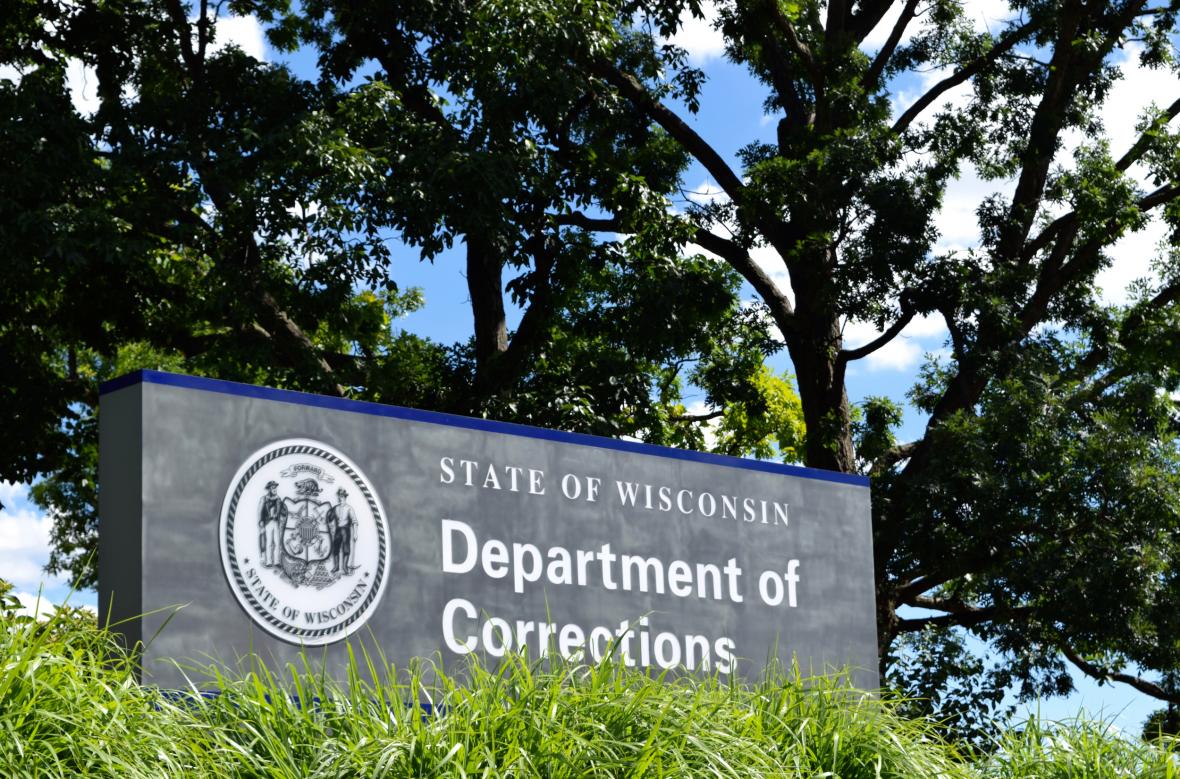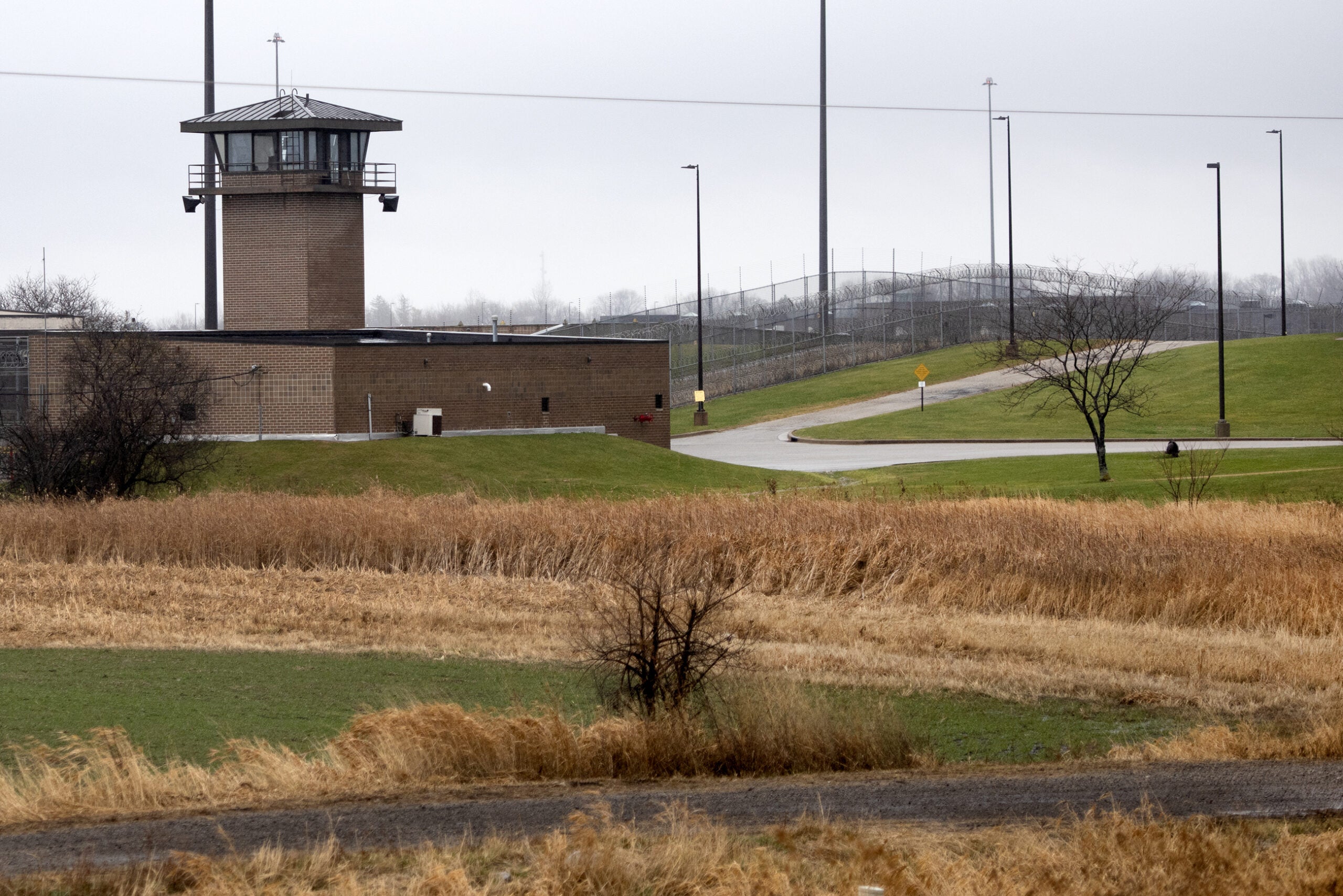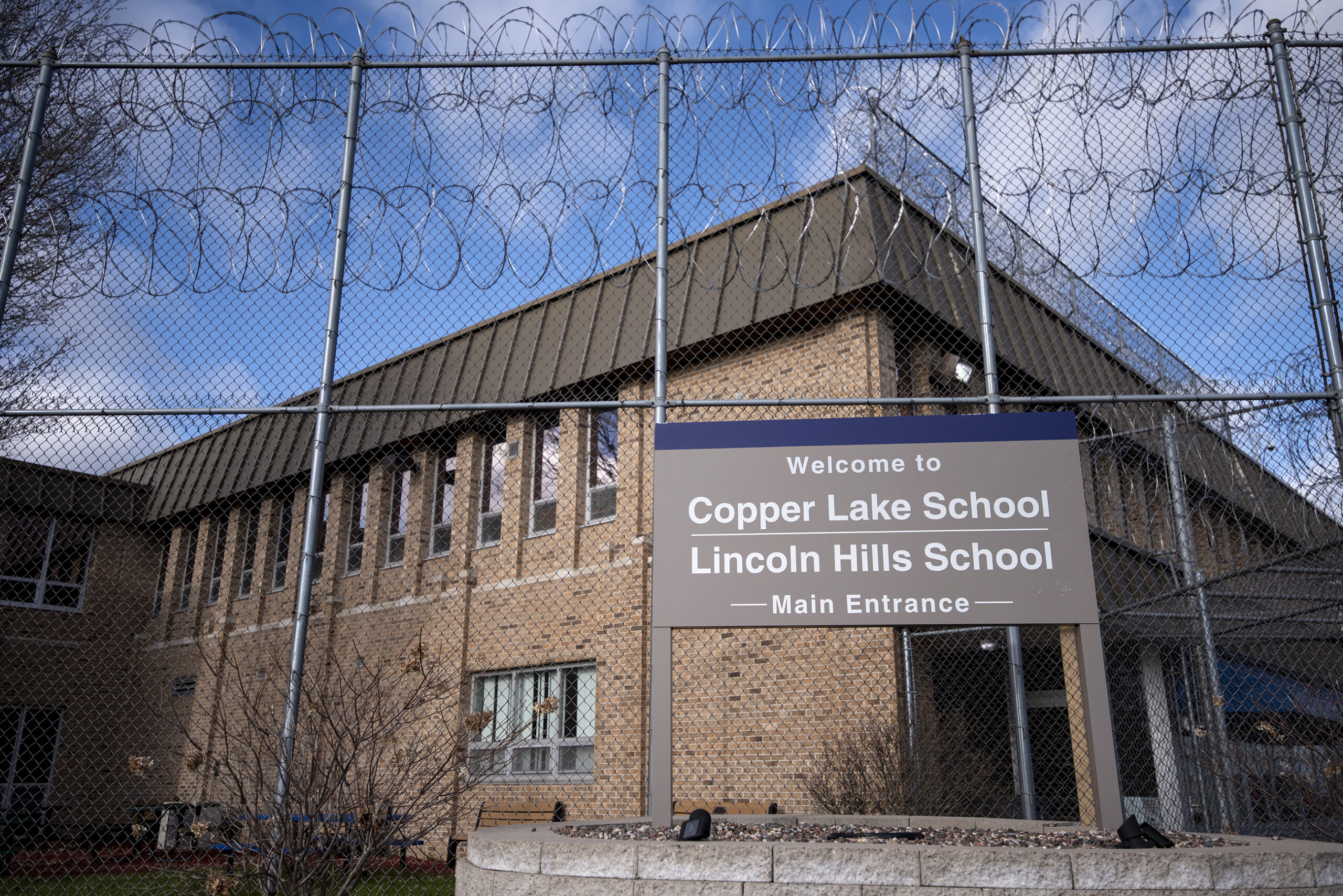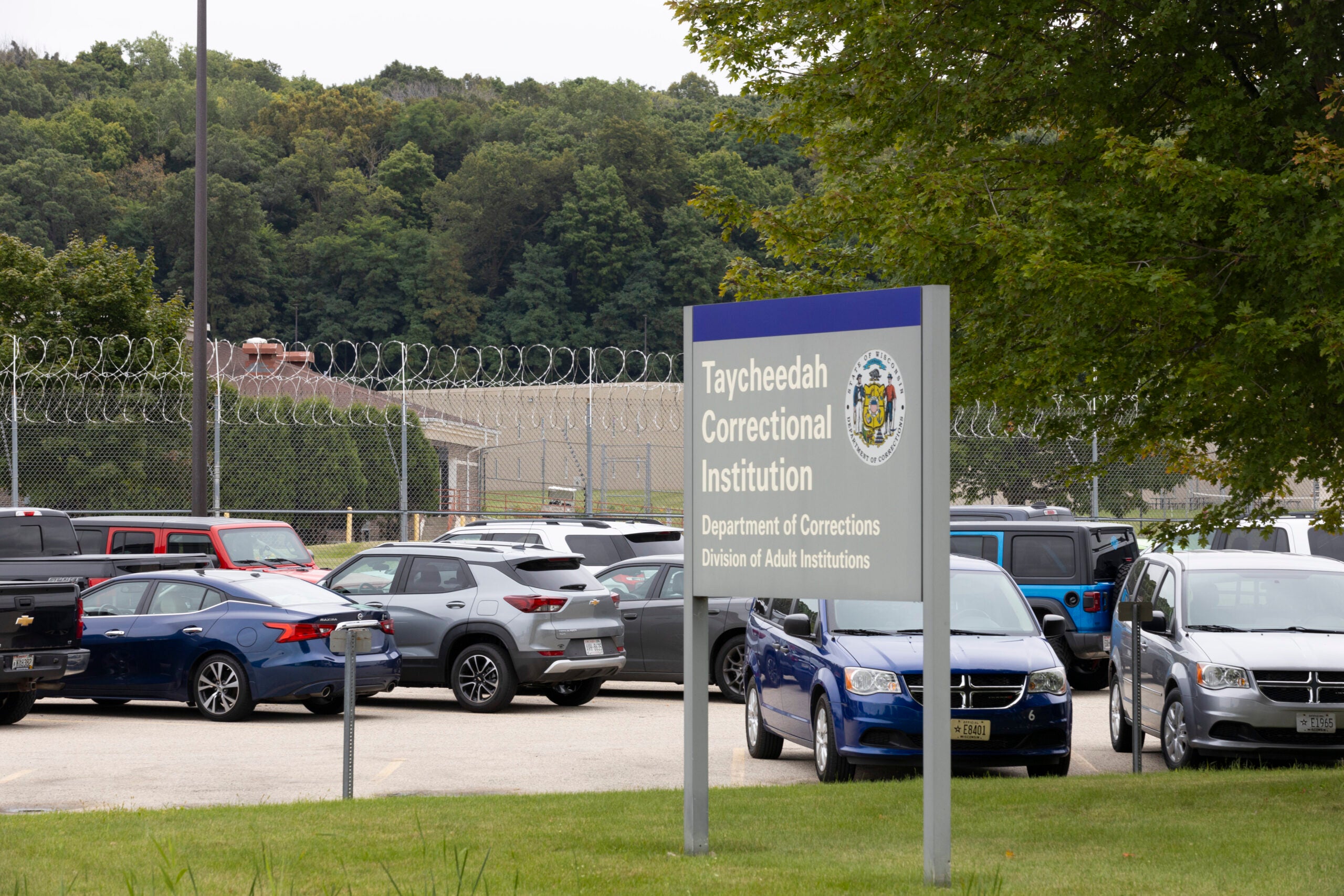A medical examiner has confirmed at least two inmates of a Wisconsin prison have died after contracting the coronavirus.
The Dodge County Medical Examiner’s Office said two prisoners at the Dodge Correctional Institution died in September. The state Department of Corrections does not report the deaths because of privacy laws.
The medical examiner said a 63-year-old man with preexisting health conditions died Sept. 12 from COVID-19. And on Sept. 15, a 62-year-old man who tested positive for COVID-19 while incarcerated at Dodge Correctional died of lung cancer.
News with a little more humanity
WPR’s “Wisconsin Today” newsletter keeps you connected to the state you love without feeling overwhelmed. No paywall. No agenda. No corporate filter.
The medical examiner said the coronavirus infection was a contributing factor to his death.
According to the Department of Corrections’ COVID-19 testing dashboard, 231 incarcerated people at Dodge Correctional have tested positive for COVID-19, with 75 marked as “active cases,” 152 recovered and four released as of Thursday.
“We continue to do the best we can, given the tools we have, to keep the virus out of our institutions, to limit the spread when it’s in our institutions, and to care for those who are in DOC custody and are infected with this virus,” said John Beard, director of communications for the Wisconsin Department of Corrections. “It’s not an ideal situation for anyone — it is a difficult situation for our staff, for the people who are in our care at the institutions and their families.”
Statewide, 2,157 people in Department of Corrections facilities have tested positive, with 1,000 listed as active cases. Inmates are tested at intake, when they’re transferred to another DOC facility, and at release. Beard said the department also tests anyone exhibiting symptoms, and is working with the National Guard to mass test, with a priority for facilities that have had apparent outbreaks, high number of cases, or high community spread in the surrounding areas.
The positive cases are mostly concentrated at six facilities that each have more than 100 cases, with the most in the Kettle Moraine, Oshkosh and Green Bay Correctional Institutions. Green Bay has seen 300 of its 304 positive cases recover, which Beard pointed to as a success of the department’s extensive efforts to test, isolate and treat those who contract the virus. Waupun Correctional Institution, similarly, has gone from 233 total positive tests to only 5 active cases, with 228 people recovering.
“Everybody that works at the institutions and at the Department of Corrections is concerned; it’s a highly contagious disease,” said Beard.
Tim Muth, a staff attorney at the ACLU of Wisconsin, said that disease is a particular threat to places with limited space, where people can’t easily leave.
“You have to keep on top of it all the time, because it’s like a cruise ship, it’s like a nursing home, it’s like any enclosed space,” he said. “You just can’t be socially distanced in a prison, that’s the bottom line.”
For some activist groups, too, there’s a feeling that outbreaks, serious cases and even deaths were inevitable, given different factors prisons were grappling with even before the pandemic.
“Our prisons are really overcrowded, there’s just no way to create the kind of social distancing that’s needed,” said David Liners, state director for the grassroots group WISDOM. “We were very, very concerned that there were going to be huge outbreaks of COVID-19 and eventually that some people were going to die, and some people were going to be very sick, and I’m sad to see that that’s all happening.”
He noted that many incarcerated people have serious health issues or underlying conditions, like the two men who died. Liners said his organization has heard anecdotally from people in state prisons that many people are sick and some have died, though it’s not clear what they died from.
“Just the fact that it took such a long time for news of these two to come out leads you to wonder how many more there are, and how many more there will be,” said Linders.
Ex-Incarcerated People Organizing, or EXPO, sent a press release Thursday afternoon that raised the same concern.
“Examining the numbers at Dodge Correctional Institute provided by the WI DOC, it appears that everyone at Dodge has either recovered, been released or are currently being treated for COVID 19, today we see that is not true,” the email said. “It appears that the two deceased men were counted among those the DOC categorized as ‘Released Positive Cases’. How many more of the 35 people categorized that way have also died? DOC has got to be upfront about how many people ‘in their care’ have died from COVID 19.”
Liners said he believes DOC is doing what it can, given crowded conditions. In addition, 530 staff across DOC facilities have tested positive, with 43 of them at Dodge Correctional. The DOC was already experiencing staffing shortages before the pandemic.
Liners said he’d like to see Gov. Tony Evers do more to have people released early who are unlikely to re-offend, who are particularly vulnerable because of their age or health conditions, or who are close to the end of their sentences.
“He’s showing a lot of good leadership on COVID-19 everywhere else in the state. He’s being bold,” he said. “But when it comes to the prisons, he hasn’t said anything, even.”
The ACLU of Wisconsin, as well as other groups including EXPO, have similarly been calling for the governor and DOC to release at-risk people.
“We’ve been unfortunately warning that this was a possibility since March,” said Tim Muth, the ACLU staff attorney. “It is a tragedy that the state Department of Corrections and the governor had not acted with appropriate urgency to reduce the prison population, especially the population of people who are elderly and the population in prisons of people who have preexisting conditions that put them at risk, particularly at risk of dying from the coronavirus.”
Muth noted that the DOC also has the power to temporarily release some people from prisons under its emergency powers, but hasn’t done so.
The Wisconsin DOC announced in May that it had released some 1,600 people who had been taken into custody after violating the terms of their parole, probation or extended supervision. According to Muth, those were largely people in local jails or the Milwaukee Secure Detention Facility, so while it did ease population concerns in those areas, he said it didn’t affect prison crowding.
Governors in some other states have moved to drastically reduce their prison populations, commuting the sentences of many incarcerated people to create space in the prisons and get high-risk people into an environment where they can more easily social distance.
© Copyright 2025 by The Associated Press. All rights reserved. This material may not be published, broadcast, rewritten or redistributed.







